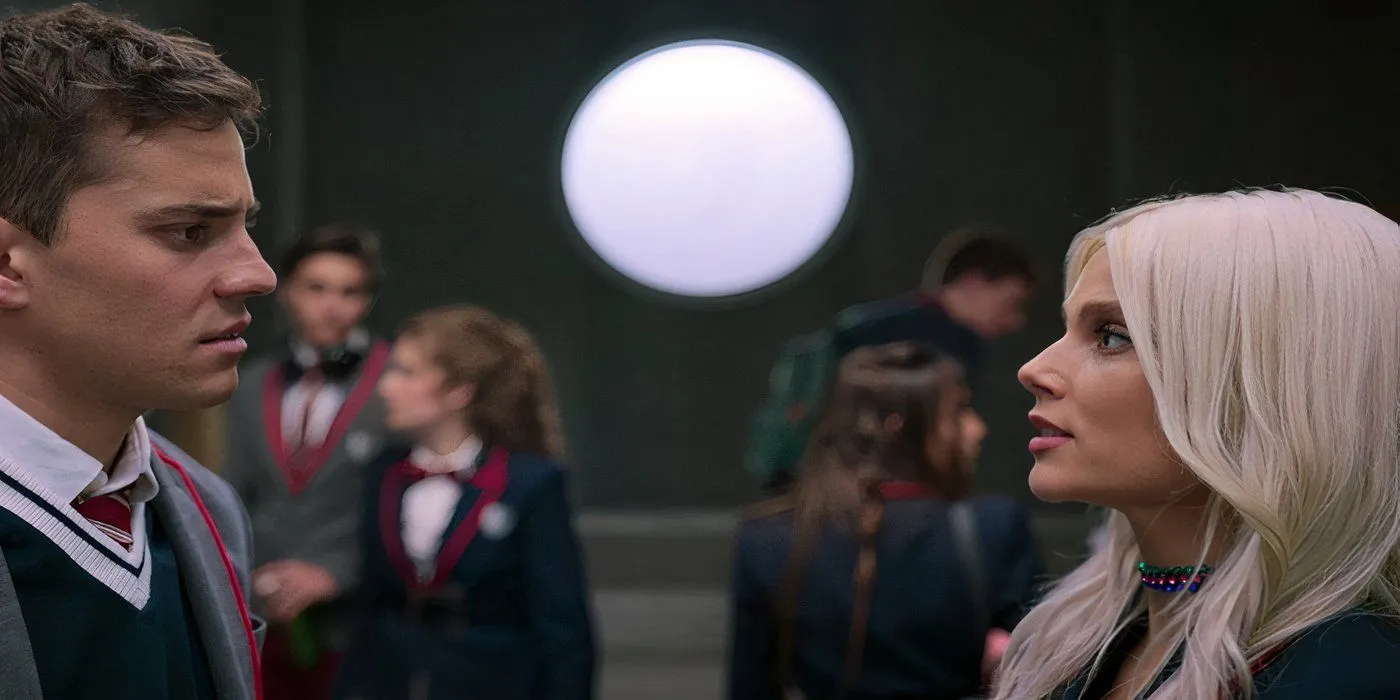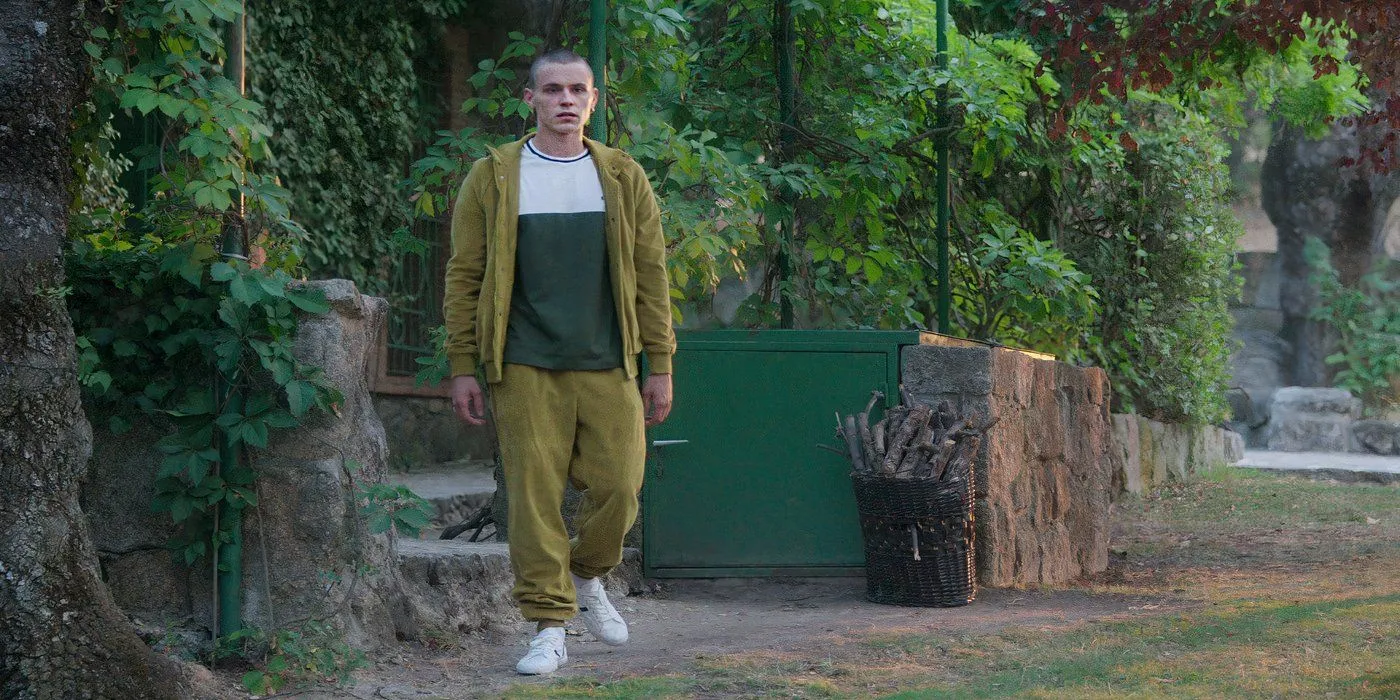
Warning: This article contains references to sexual assault and domestic violence.
Netflix’s Elite has captivated audiences around the globe through its intertwining tales of high-stakes drama, scandalous high school antics, and secretive romances. Set in Las Encinas—a prestigious school catering to the wealthy elite—the series contrasts the lives of privileged students against those of their scholarship-receiving peers, creating an atmosphere thick with tension. From its explosive outset, Elite became one of Netflix’s standout teen dramas, earning acclaim for its intricate mysteries and richly developed characters. However, its eight-season journey ultimately demonstrated a shift, as the show became weighed down by repetitive storylines and predictable outcomes.
Long-running series often experience fluctuations in quality, particularly in a landscape where streaming platforms tend to favor shorter narratives. By the time Elite wrapped up with its eighth season, it was apparent that what started as an enthralling teen drama had devolved, gradually offering diminishing thrills and surprises. Despite its conclusion trailing the high standards set in earlier seasons, Elite remains a significant chapter in Netflix’s catalog—a series that will linger in viewers’ memories.
8 Season 8
A Disappointing Finale

The eighth and final season of Elite has been widely regarded as its weakest installment, garnering an alarming 35% rating from fans on Rotten Tomatoes. The series, beloved for its intense narratives, fell flat in its concluding chapter, lacking the character development and engaging storytelling that initially won over audiences. Instead, season 8 was marred by unoriginal character arcs and a feeble core narrative, culminating in an underwhelming finale.
|
Season |
Rotten Tomatoes Audience Score |
|---|---|
|
8 |
35% |
|
7 |
53% |
|
4 |
53% |
|
6 |
58% |
|
5 |
68% |
|
3 |
82% |
|
1 |
83% |
|
2 |
88% |
One of the season’s major flaws was its failure to resolve pivotal plotlines. Even the return of original character Nadia Shanaa (Mina El Hammani) felt more like an empty gesture than a meaningful addition to the narrative. Ultimately, the closing chapter did not provide the impactful conclusion that Elite had long warranted.
7 Season 7
New Faces, Similar Struggles

Elite‘s fourth and seventh seasons often sit at the bottom of audience ratings. Season 7 was particularly criticized for tedious storylines, lack of chemistry among new cast members, and repetitive themes that drained excitement from the viewing experience. Even though it shares the same audience score as the fourth season, it is viewed as less favorable due to an over-reliance on new characters who failed to invigorate the existing narrative.
At this juncture, the former fan favorites began to frustrate viewers with their increasingly monotonous arcs—Omar being a prime example. The narrative became painstakingly predictable, disappointing fans who yearned for the gripping intensity of earlier seasons. Regrettably, season 8 did little to rectify these issues and is seen by many as an even greater decline.
6 Season 4
Overcrowded Cast and Shallow Drama

Season 4 of Elite fell short regarding the suspense and quality audiences had come to expect, earning a middling 53% from Rotten Tomatoes users, placing it among the series’ worst. This season seemed more invested in simplistic drama rather than character development, ultimately making it less engaging. The influx of new characters did not enhance the intrigue; instead, it created a sense of overcrowding.
While Elite has excelled in blending mystery, scandal, and teenage angst, its fourth season sacrificed depth for excessive drama. However, some familiar faces, like Cayetana Grajera (Georgina Amorós), found new narrative arcs, providing some redeeming qualities to a lackluster season.
5 Season 6
A Disappointing Turn

When Elite entered its sixth season, a noticeable dip in audience enthusiasm became evident, with a Rotten Tomatoes score ten points lower than the previous installment. While season 5 hinted at waning excitement, season 6 confirmed a downward trajectory. The closure of significant plot threads left viewers deflated, especially with the death of Samuel García, whose exit didn’t carry the weight it arguably deserved.
Despite these disappointments, this season tackled deeper, more serious themes such as gender identity, domestic violence, and sexual assault. This shift toward relatable issues imbued the season with more gravitas, making it one of the more meaningful installments of the series.
4 Season 5
Embracing Serious Themes for Deeper Drama

Despite receiving mixed reviews, season 5 of Elite brought new characters into the fold while tackling mature subjects. However, the reception was divisive, with many believing the show’s complexity began to overwhelm the core elements that had made it great. The shift from high school realism to pleasure-driven narratives filled with sex and drug-related escapades felt excessive and somewhat out of touch.
Though the dramatic stakes still managed to pull viewers in, it was a stark departure from the grounded approach of the show’s early installments. Nonetheless, Elite retained its exhilarating allure, even if it didn’t entirely meet the high bar set by its preceding seasons.
3 Season 3
Thrills, Growth, and New Faces

Some viewers have critiqued season 3 as a weaker entry, yet it mirrors the quality and pacing of its predecessors. The storyline revolves around yet another deadly mystery—the demise of Polo Benavent (Álvaro Rico)—effectively reviving intrigue while allowing characters to confront their past. While it may not reach the zenith of excellence, this season maintains thrilling and engaging narratives.
More than just a rehash, season 3 successfully explored profound character development and self-discovery, seamlessly integrating new personalities like Yeray Engoga and Malick Diallo. Although not every new character resonated, they provided a new layer of emotional drama, ensuring the season remained engaging, if not ground-breaking.
2 Season 1
Intrigue, Tension, and Characters That Hooked Us

Season 1 of Elite laid the foundation for everything that followed, immersing viewers in the world of Las Encinas and its diverse characters. While some regard it as the pinnacle of the series due to its engaging premise, it wasn’t without its flaws. Nevertheless, it burst with suspense and compelling narratives that ensnared viewers from the get-go.
Beyond the overarching mystery surrounding Marina’s death, it was the multi-faceted characters that truly elevated this season. Each individual presented authentic complexities through their personal struggles and desires, with the use of high production values enhancing the immersive viewing experience.
1 Season 2
A Perfect Blend of Drama and Mystery

Season 2 of Elite stands tall as a fan favorite, embodying the peak of emotional intensity and intricate storytelling, as reflected in its impressive 88% audience score on Rotten Tomatoes. This season built upon the established themes from season 1 and arguably delivered the series’ finest moments, allowing each narrative thread to receive the attention it deserved, contrasting sharply with the cluttered plots of later seasons.
Following the shocking fallout from Marina Nunier’s death, the cast navigated heightened emotional stakes, contributing to a season rich in drama and suspense. The chemistry between key pairs, particularly Omar and Ander, further accentuated the viewing experience, while character arcs remained cohesive and engaging. Consequently, season 2 has secured its legacy as Elite’s shining chapter.
Leave a Reply